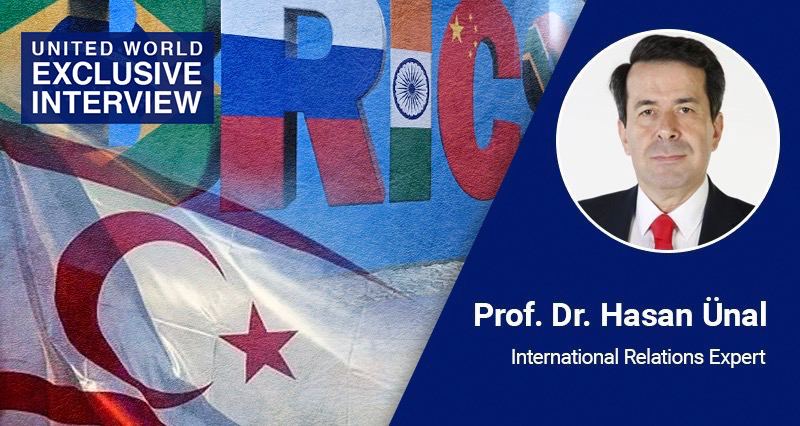UWI presents the second of the interview with Prof. Dr. Hasan Ünal, international relations expert from Ankara’s Başkent University.
In the first part, Ünal described the US and EU pressure on Türkiye in the Cyprus issue. In the following part, he shows how Türkiye can achieve international recognition for the Turkish Republic of Northern Cyprus.
How can Türkiye solve the Cyprus issue?
We want the Turkish Republic of Northern Cyprus to be recognized. Even from today we can see that the Cyprus issue is one of the most important fault lines of the multipolar world.
Candidates to recognize the Turkish Republic of Northern Cyprus
At least some BRICS countries, I think all of them could accept that Türkiye is right in the Cyprus issue, and some of them may even try to recognize the Turkish Republic of Northern Cyprus. That means, in other words, BRICS is the most important door Türkiye could knock on the Cyprus issue.
The Organization of Turkic States is also a very good initiative. And there is also the Shanghai Cooperation Organization. If Türkiye acts with the understanding that each of these organizations and the countries in them have their unique infrastructures, obligations that drive from their geography, Türkiye’s thesis on the Cyprus issue could be supported by all of them.
CHP sides with the EU, not BRICS
Therefore, statements by the main opposition party, the Republican People’s Party (CHP), such as “The national income per capita in the BRICS countries is four thousand dollars, while the average in the European Union is thirty to forty thousand dollars, so which side should we choose?” implying the advantage of being with the European Union, should not be taken seriously in terms of the process of determining the policy of the Turkish state.
The comparison of four thousand and thirty-forty thousand dollars is also incorrect. A significant part of the national income of the European Union and the US consists of debts. But the BRICS countries, especially China, are filled to the brim with the reserves, not debts. They have trillions of dollars, trillions of euros, gold and other reserves. Moreover, their economies are largely based on production and export.

















Leave a Reply